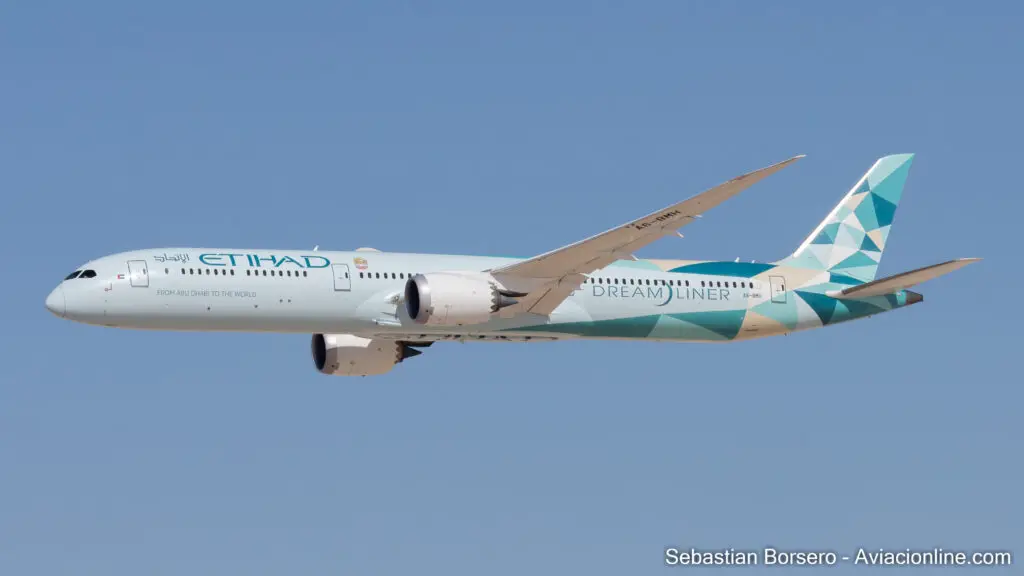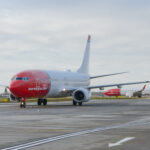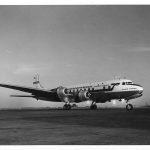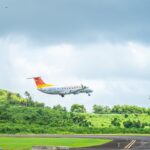As part of its partnership with SATAVIA, a company that provides and analyses data to reduce the environmental impact of aviation, Etihad Airways announced today that it will implement new measures to prevent the formation of contrails. For the first time, on a transatlantic flight to be performed by a Boeing 787.
As reported by the UAE national carrier, a «NetZero» flight, as the airline calls it, will take place between Washington-Dulles International Airport (IAD) and Abu Dhabi International Airport (AUH) on Sunday 13 November.
The operation will use sustainable aviation fuel (SAF) and will incorporate experimental contrail prevention technologies developed in collaboration with SATAVIA.
Contrails are formed from ice crystals generated by the combustion of aircraft engines at high altitudes. According to several studies, they increase the retention of solar radiation and thus contribute to the warming of the atmosphere.
According to SATAVIA models, they account for up to 60% of the total climate impact of the aviation industry. Overall, aviation is responsible for approximately 2% of total anthropogenic greenhouse gas emissions.
In this regard, Etihad said that next Sunday’s flight will be a demonstration of commercial aviation’s potential to reduce its environmental impact based on currently available technology.
Building on Etihad and SATAVIA’s weekly joint exercises, the operation will be the first of its kind over the North Atlantic. This is one of the world’s air traffic busiest regions. Such routes often combine high traffic density with atmospheric conditions that are conducive to significant non-carbon dioxide impact. In that sense, the test flight will serve to work on the active management of this phenomenon.
«The collaboration between Etihad and SATAVIA demonstrates the possibility of dramatic sustainability advances in day-to-day commercial operations», remarked Mariam Alqubaisi, Etihad’s Head of Sustainability and Business Excellence. «In 2022 alone, this technology has enabled us to eliminate over 6.500 tonnes of carbon dioxide equivalent climate impact», she added. Furthermore, Alqubaisi explained that «the aviation industry can’t achieve climate-neutral operations without managing non-carbon dioxide effects».














